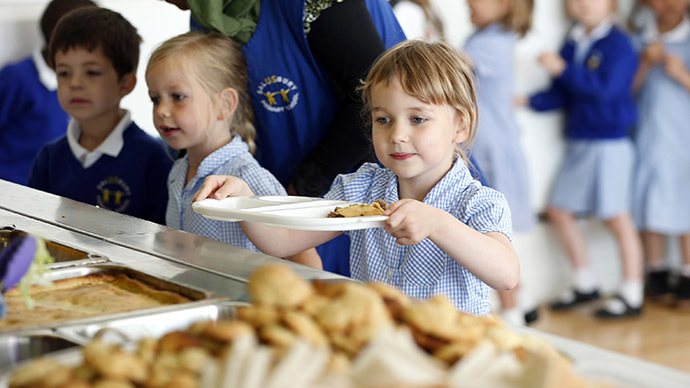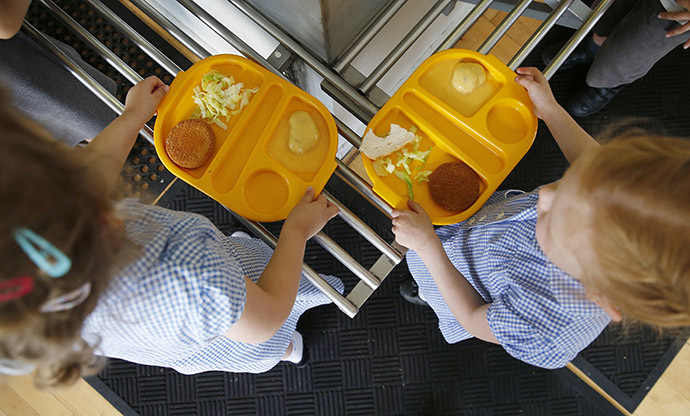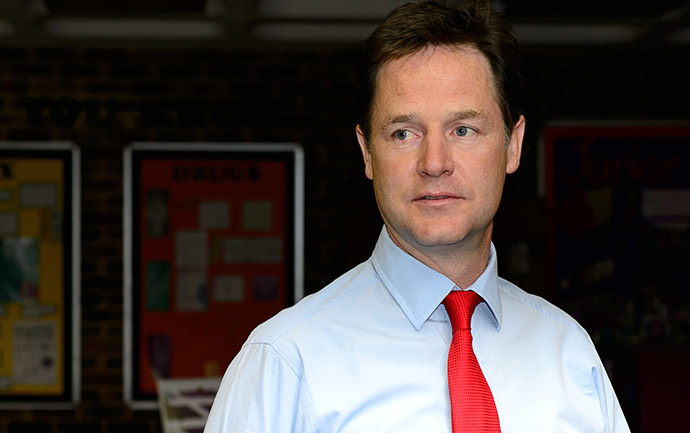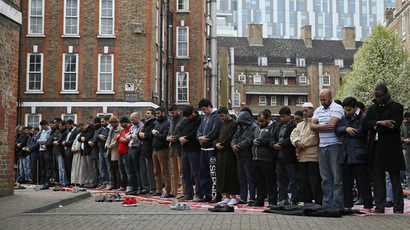No free lunch: Schools lack £25mn for student meal program

British schools have warned they will struggle to feed their students and will be forced to sacrifice spending on maintenance and resources to provide meals under the government’s controversial new school meals policy beginning next month.
British schools have warned they will struggle to feed their students and will be forced to sacrifice spending on maintenance and resources to provide meals under the government’s controversial new school meals policy beginning next month.
Research produced by the Local Government Association (LGA) showed that nearly half of local councils will have to dip into other budgets to provide school meals to every child under a plan spearheaded by Deputy Prime Minister Nick Clegg last year.
As a result, councils need more than £25 million to be able to deliver the policy in the future.
The scheme, which was announced at last year’s Liberal Democrat party conference, was designed to provide all students in their first year of primary education with free school meals.

However, it was met with a great deal of scepticism from the start, as many school head teachers noted it would require them to invest millions into building new kitchens and buying new equipment to deliver the meals.
Teachers also expressed concerns with the policy, fearing that it could have an impact on class sizes, support staff and cutbacks to services for disadvantaged pupils.
The policy also caused a rift within the government, with a former senior adviser referring to it as a “gimmick” that had “been dreamt up on the back of a [cigarette] packet.”
While the government has made more than £150 million available to councils to fund the scheme, nearly half of state schools signed up to the scheme said they would still need more funding to provide the services, with 37 percent of schools surveyed saying the shortfall would come out of other budgets.
On average, councils without enough money would need £488,000 to make the policy work.
"Hard-pressed schools and councils are being forced to bail out David Cameron's government because of its own incompetence,” said Shadow Education Secretary Tristram Hunt.
Free school meals was one of the Liberal Democrats’ flagship policies upon entering the coalition government in 2010, and they hope to flout its success at the next general election.

As deputy PM, LibDem leader Clegg championed the policy as “one of the most progressive changes to our school system for a long time.”
However, following the publication of the LGA’s study, education leaders hit out at the government’s failure to provide enough cash to local councils.
“The research makes it clear central government has not provided schools with enough money to do the essential work necessary to give 1.5 million children a free meal at lunchtime,” said David Simmons, Conservative chairman for the LGA’s Children and Young People board.
He added: “It cannot be right that, for some councils, money set aside for maintenance has instead had to be spent plugging the shortfall in money which the government should have provided for meals.”
Deputy General Secretary of the National Union of Teachers (NUT) Kevin Courtney said it was “wrong” that local councilors were being forced to make cuts to “essential services like school maintenance to meet the cost of the introduction of school meals.”
“This is another example of the government giving with one hand and taking away with the other,” he added.
Research produced by cereal maker Kellogg’s last year showed that food poverty in Britain is at an “all-time high” with one in seven children going hungry. The research also showed that 820,000 children in Britain skipped breakfast once a week because their parents could not afford to put food on the table.
Additionally, research published by the National Association of Schoolmasters/Union of Women Teachers (NAS/UWT) earlier this year showed that teachers were having to bring in food to give poorer pupils in the morning, as a lack of food made them too hungry and exhausted to learn.














